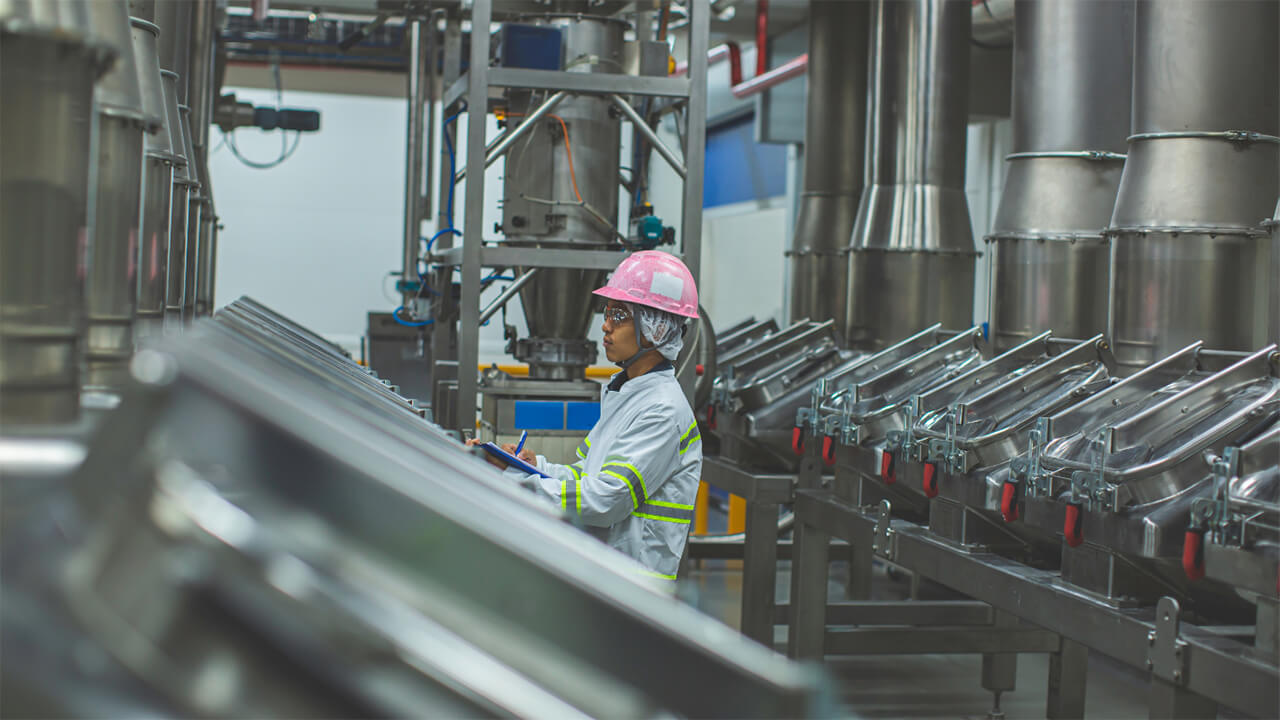The importance of traceability in modern supply chains

4 min read
In today’s era, where global supply chains are becoming more numerous and more complex, the need for transparency and full control is critical.
From food chains to pharmaceuticals or electronics, traceability for both workers and consumers must be accessible and simple, so that every business can operate successfully and sustainably. But what exactly is traceability and how can it be achieved?
What is traceability?
When we refer to traceability, we mean the ability of a business to monitor and record every stage of a product’s journey. From the initial procurement of raw materials, through the production process, then distribution and finally sale!
Each stage of the product is documented and recorded. More specifically, this process may include:
- The source of raw materials.
- The dates and locations of production.
- The transportation and storage procedures.
- The final delivery to the consumer.
Why is it important?
Traceability, the monitoring and recording of a product’s journey, is extremely important for many reasons.
Product safety is ensured
Tracking and recording a product’s journey ensures that the product reaches the consumer and meets the required quality standards. This is because if a problem is detected, such as contamination in a food, then companies have the ability to recall specific batches of products without affecting overall production.
Especially in the food and pharmaceutical sector, this process is vital!
There can be transparency and credibility
More and more consumers want to know the origin of the products they buy. Traceability gives businesses the option to give consumers access to the information they want, thereby inspiring trust.
Efficiency increases and costs decrease
Traceability allows businesses to optimize supply chain management. If something goes wrong, businesses can pinpoint the exact point of the problem and fix it immediately, saving both time and money.
Helps businesses comply with regulations
Many industries, including food and pharmaceuticals, have regulations requiring robust traceability systems. So it is important for businesses to invest in such solutions, ensuring they are following the rules and avoiding any penalties.
How does traceability work?
Traceability can be achieved with various technologies. At the center of the technologies are ERP systems.
What are ERP systems?
ERP (Enterprise Resource Planning) information systems are software that unify business functions, such as production, inventory management, sales, distribution and finance. More specifically, they gather all supply chain information in a single and organized environment, allowing easy access and analysis of data.
ERP systems offer a wealth of options and information, such as:
- Centralized data management: All information about a product, such as its origin or delivery date, is gathered on a single platform. This way, businesses can quickly identify any problems.
- Automatic real-time updates: All products go through various stages, production, storage, accommodation. ERP systems instantly update the database, allowing those with access to have a complete picture of the status of the products.
- Easy monitoring and reporting: ERP systems provide analysis and reporting tools so businesses can identify trends or problems in the supply chain.
- Simplified Compliance: Having accurate, up-to-date records that are easily traceable and searchable can really reduce the amount of work required to comply with regulations that a company must adhere to. Customizable reporting tools within the software also make it much easier to track compliance and adjust as needed. Auditing by an auditor also becomes simpler and more accessible.
- Easy management: Managing an ERP system is very simple for employees, as it can be done simply from a smartphone or tablet.
- Cost savings: For business owners and managers, the most compelling reason to buy an ERP system is that it reduces overall costs, often by a large amount. The automation that an ERP system provides can reduce or even eliminate many administrative and operational costs. One of these is manual data entry. Also, the ability to track can help quickly identify higher expenses, which makes it much easier to reduce costs. The improvements in planning that an ERP system allows can also prevent rush orders, overproduction or over-ordering, which can significantly increase costs.
- Accurate Forecasting: A business can only be prepared for what’s coming if it knows what to expect. A forecast can involve using a wide range of historical data and sometimes other inputs to predict future demand, revenue, expenses, and other numbers. Forecasts are much more accurate when a business uses an ERP system because they are based on more accurate and comprehensive information, since all of this data is now in one place!
Which ERP system to choose?
The best ERP system for your business should offer all of the features mentioned above. The best ERP platform for your business will of course vary depending on the specifics of your company, including its size, industry, business model, and future goals.
Make sure the system can not only meet your current needs, but has the scalability and flexibility to support your organization’s growth and changing priorities.